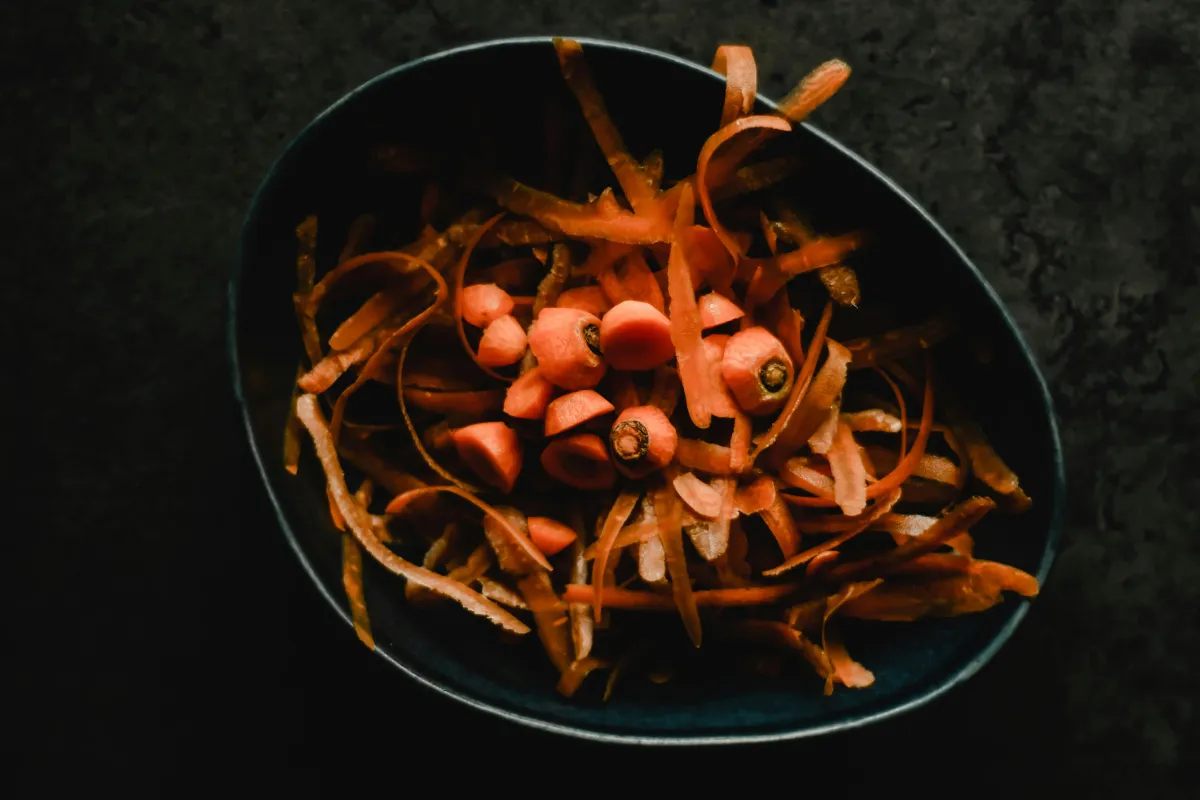Our Latest Posts

How to Reduce Food Waste and Save Money
Food waste is an issue many of us face, whether it's tossing out leftovers, letting fruits and vegetables spoil, or overbuying items that we never get around to using. Not only is this wasteful for the environment, but it can also have a significant impact on your budget. In fact, it's estimated that the average family loses hundreds of dollars each year due to food waste. The good news is that with a few mindful habits and some smart planning, you can reduce food waste and save money at the same time. In this blog, we’ll explore practical tips to help you minimize waste, stretch your grocery budget, and make the most of your food purchases.
1. Plan Your Meals Ahead of Time
One of the best ways to reduce food waste is to plan your meals for the week. Meal planning helps you buy only the ingredients you need, ensuring you don't purchase unnecessary items that might go unused.
Create a Weekly Menu: Sit down once a week to plan your meals. Include breakfast, lunch, dinner, and snacks. This helps ensure you're only buying what you'll use in the upcoming days.
Make a Shopping List: After planning your meals, create a shopping list and stick to it. This will keep you from buying extra items that may not get used before they spoil.
Consider Leftovers: Incorporate leftovers into your plan. If you make a large batch of soup or casserole, plan to use it for lunch or dinner the next day.
Meal planning takes just a few minutes but can save you a lot of money and prevent food from going to waste.
2. Practice Proper Food Storage
How you store your food plays a huge role in how long it lasts. Proper food storage can extend the shelf life of produce, dairy, and other items, helping you use them before they spoil.
Store Produce Correctly: Some fruits and vegetables need to be refrigerated, while others last longer when stored at room temperature. For example, apples, carrots, and lettuce should be refrigerated, while bananas, tomatoes, and onions should be kept on the counter. Do some research or check the labels to ensure you're storing your produce correctly.
Freeze Extra Food: Freezing is an excellent way to preserve food that you won’t be able to eat right away. You can freeze bread, meat, leftovers, fruits, and vegetables to extend their shelf life. Just be sure to label and date the items so you know when they need to be used.
Use Airtight Containers: Invest in airtight containers to store leftovers, grains, and snacks. This helps maintain freshness and prevents spoilage. For items like bread, you can also freeze them to prevent mold from forming.
Proper storage can help you get the most out of your food, reducing the need to throw things away due to spoilage.
3. Use Leftovers Creatively
Leftovers don’t have to be boring. There are countless creative ways to transform leftovers into new, exciting meals. Instead of throwing away extra food, consider these ideas:
Turn Leftover Meat into a Salad: Shredded chicken or beef from last night's dinner can be added to salads for a quick and easy lunch.
Make Soup: Leftover vegetables, grains, or beans can be used to create a hearty soup. Simply add some broth and seasonings, and you've got a delicious meal.
Repurpose Leftover Vegetables: Extra vegetables can be turned into stir-fries, omelets, or even mixed into pasta dishes. If you have extra mashed potatoes, they can be transformed into potato cakes.
By thinking outside the box, you can turn leftovers into meals that feel fresh and exciting.
4. Keep Track of Expiration Dates
A big reason food goes to waste is because it's forgotten until it's too late. Keeping track of expiration dates ensures you use food before it spoils.
First In, First Out (FIFO): When organizing your pantry, fridge, and freezer, use the FIFO method. Place newer items in the back and older items in the front, so they get used first. This helps prevent food from sitting around too long and going to waste.
Label Items: If you freeze items or store leftovers, be sure to label them with the date they were stored. This will help you keep track of how long they’ve been in your fridge or freezer.
Check Dates Regularly: Make a habit of checking expiration dates during your grocery trips. When you buy new items, check the dates on the products you already have and use them before they go bad.
By being mindful of expiration dates, you can reduce the likelihood of tossing out food that’s still perfectly good.
5. Buy Only What You Need
Impulse purchases can lead to food waste, especially when you buy more than you can consume before items spoil. To minimize waste, be more intentional about your grocery shopping.
Stick to Your Shopping List: Avoid buying items that aren’t on your shopping list. It's easy to be tempted by promotions and bulk discounts, but only purchase what you truly need for your meals.
Buy Smaller Portions: If you're cooking for one or two people, avoid buying large quantities of perishable items that you might not use in time. Instead, buy smaller portions or buy only what you can consume within a week.
Avoid Bulk Buying for Perishables: While bulk buying works well for non-perishable items, it’s not always the best strategy for perishables like dairy, meat, and produce. Instead, buy these items in smaller quantities to reduce the risk of waste.
By focusing on what you truly need, you’ll spend less and reduce food waste in the process.
6. Compost Food Scraps
If you do end up with food scraps that can’t be consumed, composting them is a great way to keep them out of landfills. Food scraps like vegetable peels, eggshells, coffee grounds, and fruit cores can be composted and used to fertilize your garden or local community garden.
Not only does composting reduce waste, but it also provides you with nutrient-rich soil for your plants. It's an eco-friendly solution that helps complete the cycle of reducing, reusing, and recycling.
Reducing food waste is a win-win for both your wallet and the environment. By planning your meals, properly storing food, using leftovers creatively, and being mindful of expiration dates, you can cut down on waste and save money at the same time. Small changes in your shopping, cooking, and storing habits can have a significant impact over time. Start implementing these tips today, and you’ll be amazed at how much money you can save while doing your part to reduce food waste.
One or more of the links above are affiliate links, meaning, at no additional cost to you, we will earn a slight commission if you click through and make a purchase. Each of these products is chosen by a trusted member of our team.
Get In Touch!
Email:
partnerships@phoenixifyyourlife.com
Find us on Social Media:
@PhoenixifyYour Life

